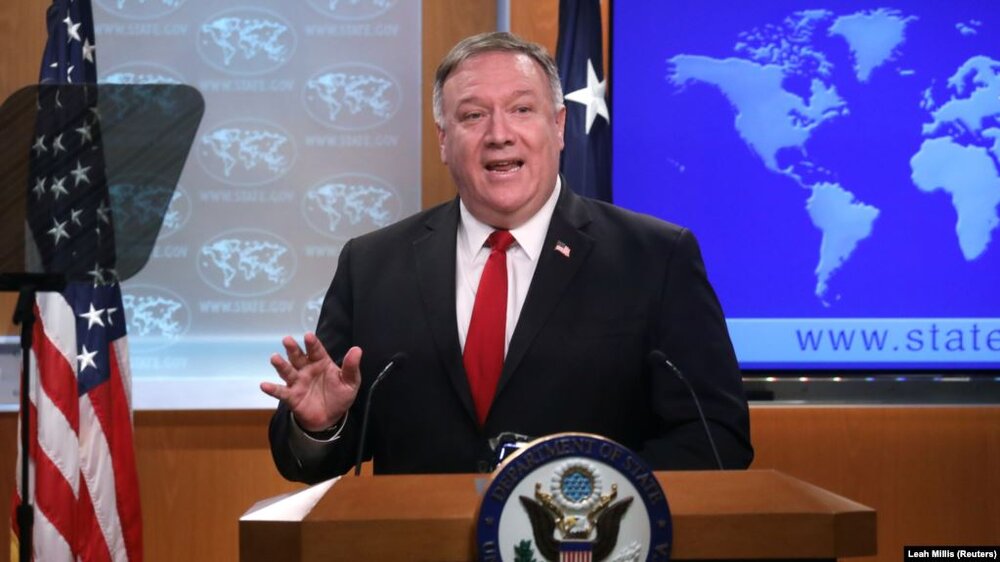U.S. urges UN to renew Iran arms embargo

TEHRAN — Washington has called on the United Nations Security Council to extend its arms embargo on Iran, which will otherwise expire in October.
Citing the Islamic Republic’s recent satellite launch, Pompeo said in a statement on Saturday that Tehran should not be allowed to buy and sell conventional weapons.
On Wednesday, the Islamic Revolution Guards Corps (IRGC) successfully launched Iran’s first military satellite into the orbit.
The first military satellite, dubbed Noor 1 [Light 1], was launched upon Ghased (Messenger) satellite carrier in the early hours of Wednesday from a location in the central desert of Iran, Sepah News reported.
Pompeo pointed to the announcement, claiming it showed that Iran’s space program was in fact “neither peaceful nor entirely civilian”.
He claimed that the technology used to launch the satellite was compatible with that used to launch ballistic missiles, saying “Iran’s dangerous missile programs” need to be constrained.
He further called on the European Union to “sanction those individuals and entities working on Iran’s missile programs.”
He also claimed that lifting the sanctions imposed on the Islamic Republic may give rise to “violence” in West Asia.
Under the 2015 Iran nuclear deal, which the U.S. abandoned in May 2018, a UN ban on weapons sales to Tehran will end in October 2020.
In December 2019, President Hassan Rouhani said Iran intends to stay in the nuclear deal despite the U.S. actions, arguing that the internationally-endorsed pact will be put to good use in 2020 when the arms embargo comes to an end.
Russian Foreign Ministry's Department for Nonproliferation and Arms Control Director Vladimir Ermakov said in February that the UN Security Council was not discussing the possibility to extend the arms embargo imposed on Iran.
“I can assure you that there is no official discussion on reviewing the UN Security Council's Resolution 2231 either at the Security Council or at any other platform,” Ermakov said, when asked whether there were any talks on possibly extending the embargo.
“The above-mentioned resolution, which, I would like to note, envisions an authorization-based procedure for delivering weapons and military equipment to Iran and from Iran,... does not actually provide a mechanism or even an option to extend it,” Ermakov added.
Last week, Pompeo made similar accusations, saying, “The arms embargo on Iran – the world’s leading state sponsor of terror – expires six months from today. The UN Security Council (UNSC) must extend the embargo before Iran’s violence escalates and they start a new arms race in the Middle East (West Asia). The clock is ticking.”
“In the last year, Iran fired ballistic missiles at its neighbors, mined and captured oil tankers, smuggled weapons into conflict zones, and shot down a civilian passenger jet. We can’t risk Iran buying more advanced weapons and transferring their arsenal to irresponsible actors,” he said in a tweet.
Following the satellite launch on Wednesday, Pompeo said that “Iran needs to be held accountable”, claiming that it was not consistent with the resolution.
Reacting to Pompeo’s remarks, Iran’s Foreign Minister Mohammad Javad Zarif said neither the United States nor its European allies, with their “flimsy” misreading of the landmark nuclear deal, were allowed to “lecture” the Islamic Republic on its missile program.
“Iran neither has nukes nor missiles DESIGNED to be capable of carrying such horrific arms,” the top Iranian diplomat said in a Twitter post on Friday.
MH/PA
